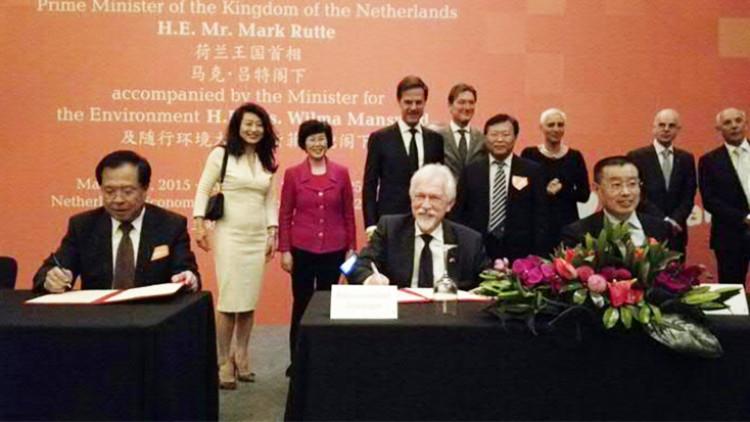The Netherlands could learn a thing or two
How do other countries combat scientific espionage?

“Until recently, it was possible to raise hundreds of thousands of euros worth of research funding if you were willing to cooperate with China, with hardly any conditions attached,” stated AWTI chair Eppo Bruins said on the
Dutch TV programme Nieuwsuur. “We were naive.”
Lately, espionage, knowledge theft and covert subversion have been hot topics in the Netherlands. Last week, the Dutch intelligence services sounded the alarm, saying China, Russia and Iran were targeting the country.
But what can the Netherlands do? Looking to know how other countries deal with this problem, AWTI asked the Leiden Asia Centre to conduct a comparative study (only available in Dutch, Ed.)
The centre examined nine countries in total. Of the European countries, France, Germany, Finland, the Czech Republic and the UK were included in the study. The researchers also looked at the US, Australia, Japan and Taiwan.
Main takeaways
Most countries appear convinced of the importance of knowledge security. According to the researchers, the Czech Republic is more divided on the issue, which leads to less coherent policy.
In some instances, national politics end up playing a dubious role in the choices being made, producing policies designed not only to address actual risks but also to advance the political agendas of certain political parties. This leads the researchers to their first conclusion: consistency is desirable and political opportunism should be avoided.
It should be noted that not all countries use the term "knowledge security". Some talk about foreign interference, others about scientific integrity (a broader definition than the one used in the Netherlands, therefore). Elsewhere, the discussion revolves around topics like academic freedom and science protection.
China
Generally speaking, all countries tend to focus on four pillars: raising awareness, exposing threats, and avoiding risks. The fourth element is doing these three things all the while reaping the benefits of international cooperation.
Some countries have made more progress in this regard than others. Japan, Taiwan and Australia's close geographical proximity to China is an important factor in their policymaking. Knowledge security is seen as vital to Taiwan's survival as a country, given it is considered a renegade province by China.
In Finland, the primary focus lies on an awareness campaign, while France tends to concentrate its efforts on risks. The researchers cannot help but conclude that the main challenge is finding the right balance.
No evaluations
But how well do these policies actually work? That's hard to say, considering they haven't been evaluated anywhere yet. In most countries, it is still too early to draw any conclusions about their effectiveness.
The researchers do venture a general recommendation, though: countries must keep things practical and make sure there is consistency. The regulations should be clear and precise and those providing funding for academic research should provide help that is easily accessible help. Competition among universities in recruiting foreign students seems ill-advised.
‘Extreme positions’
AWTI is using the study to advocate for awareness and nuance. The report stresses that international cooperation is crucial for the Netherlands, despite the palpable risks. Even so, the advisory council warns against "extreme positions".
“Dutch knowledge institutions are among the best in the world,” declared Chokri Mousaoui, project manager and member of AWTI's board, in a statement. “Many of our researchers and students collaborate with international counterparts and we should definitely keep it that way. This is about finding the right balance between naivety and an excessive focus on security.”
Finally, AWTI praises the knowledge security help desk recently established by the Dutch government but also advocates for strengthening knowledge security teams at universities, as well as more research on knowledge security.